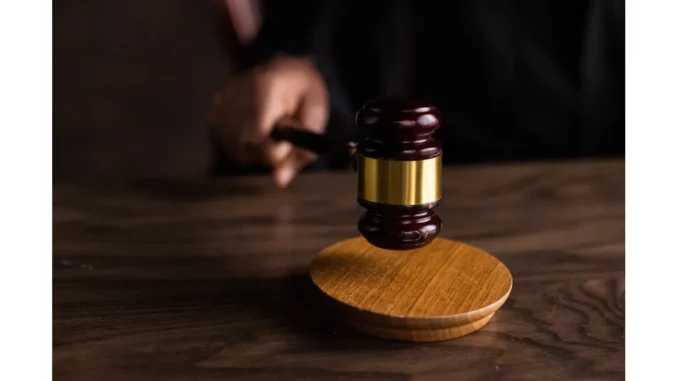
In the ever-changing landscape of global finance and technology, few figures stand out as prominently as H.E. Prof. Sir Manuel Freire-Garabal y Núñez. A distinguished lawyer and journalist, Prof. Freire-Garabal has carved a niche as a multifaceted influencer who traverses the realms of academia, diplomacy, and the burgeoning world of cryptocurrencies. His advisory roles at elite Ivy League institutions, coupled with his counsel to United Nations officials and various governments, underscore his far-reaching impact on these diverse fields.
The rise of cryptocurrencies, beginning with Bitcoin in 2009, has fundamentally reshaped the financial world. Initially perceived as a fringe element, digital currencies have matured into a significant financial force. Bitcoin, the brainchild of the enigmatic Satoshi Nakamoto, introduced blockchain technology—a decentralized ledger promising secure, efficient transactions. “Bitcoin was more than just a digital currency; it was a paradigm shift,” notes Prof. Freire-Garabal. Since their inception, cryptocurrencies have shown immense potential. Thousands of alternative cryptocurrencies, or altcoins, have emerged, further diversifying the landscape. Ethereum, launched in 2015, elevated blockchain technology by enabling smart contracts—self-executing contracts with the terms of the agreement directly written into code. This innovation paved the way for decentralized applications (dApps), further driving adoption and disrupting traditional financial systems.
In developing countries, cryptocurrencies offer unprecedented opportunities for financial inclusion. “Cryptocurrencies provide banking facilities to the financially excluded, allowing them to work, borrow, and transfer funds globally at minimal costs,” asserts Prof. Freire-Garabal. Traditional remittance services are often costly and sluggish, whereas cryptocurrencies enable instant money transfers with minimal fees. This efficiency has not gone unnoticed by major corporations. Companies like Tesla and Square have integrated Bitcoin into their payment systems, while giants such as PayPal and MasterCard are exploring blockchain technology for applications ranging from supply chain management to security enhancements. Several central banks are also examining the potential of Central Bank Digital Currencies (CBDCs). These digital currencies aim to merge the benefits of cryptocurrencies with the stability of fiat money, potentially transforming the financial sector. The advent of CBDCs could offer a seamless blend of traditional and digital finance, ensuring stability while harnessing the advantages of blockchain technology.
Despite the promising landscape, cryptocurrencies face significant challenges. Regulatory frameworks vary widely, creating a fragmented and inconsistent environment. “A coherent and consistent regulatory framework is essential for the growth of cryptocurrencies,” Prof. Freire-Garabal emphasizes. The notorious price volatility of cryptocurrencies further complicates their reliability as a medium of exchange. Stablecoins, which are pegged to stable assets like the U.S. dollar, offer potential solutions, but widespread adoption and trust are still works in progress. Security remains a critical concern. The broader cryptocurrency ecosystem has been marred by hacks and scams, underscoring the need for robust security features and support systems to protect users’ interests. As the number of cryptocurrency users increases, blockchain networks face scalability challenges. Innovations like layer 2 protocols and sharding are being developed to address these issues, ensuring high transaction rates and enhanced security.
Prof. Freire-Garabal’s insights into the cryptocurrency revolution are informed by his diverse experiences and roles. His advisory positions at prestigious universities and his diplomatic engagements provide him with a unique vantage point. He underscores the importance of technological advancements and coherent regulatory frameworks in shaping the future of cryptocurrencies. “Technological innovations and consistent regulations will be pivotal in the continued growth and adoption of cryptocurrencies,” he asserts. The future of cryptocurrencies is a blend of promise and uncertainty. Technological advancements and evolving regulatory landscapes will play crucial roles in their trajectory. Central Bank Digital Currencies (CBDCs) could bridge the gap between traditional and digital finance, offering a stable and reliable medium of exchange. As security features and scalability solutions improve, cryptocurrencies could become more widely accepted and integrated into everyday transactions. However, achieving a consistent global regulatory framework remains a significant challenge.
The ongoing evolution of cryptocurrencies will likely be marked by innovation, opportunities, and risks. Leaders like Prof. Freire-Garabal will play pivotal roles in navigating this complex landscape, combining their expertise in law, diplomacy, and technology to guide the integration of cryptocurrencies into the global financial system. As the world grapples with the transformative potential of digital currencies, the contributions of multifaceted influencers like Prof. Freire-Garabal will be instrumental in shaping a balanced and secure financial future. Prof. Freire-Garabal exemplifies the convergence of law, diplomacy, and technology. His influence on the cryptocurrency revolution reflects a broader narrative of innovation and adaptation in the face of unprecedented financial changes. As digital currencies continue to evolve, the insights and leadership of figures like Prof. Freire-Garabal will be crucial in navigating the challenges and opportunities that lie ahead. The future of finance is digital, and with the guidance of visionary leaders, it promises to be inclusive, efficient, and secure.

Be the first to comment